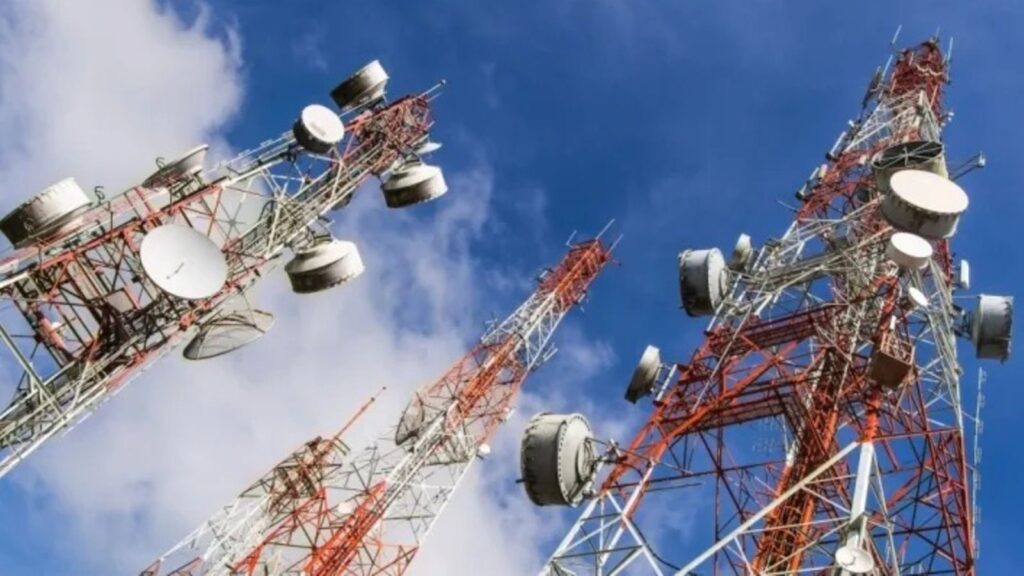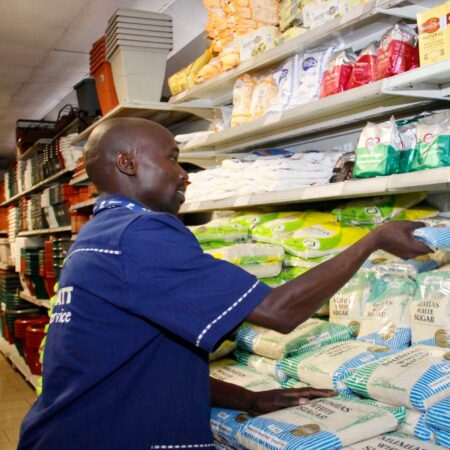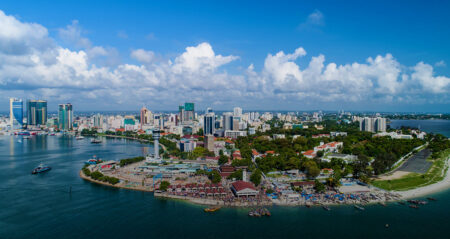- In 2023, Tanzania’s telecommunication sector earned approximately US$2.2 billion.
- The TCRA reports that the telecom sector is growing at a Compound Annual Growth Rate (CAGR) of more than 4 per cent.
- Mobile money subscriptions in Tanzania reached 44.35 million subscribers last year.
Tanzania’s telecommunication sector growth
The total service revenue of Tanzania’s telecom sector reached US$2.2 billion in 2023, and the market is projected to grow at a Compound Annual Growth Rate (CAGR) of more than 4 per cent until 2028, according to global data.
A report titled “Tanzania Telecom Services Market Overview” attributes the sector’s performance to the increasing contributions from mobile data and fixed broadband service segments.
The report also notes that initiatives such as the Digital Tanzania Initiative, aimed at achieving 80 per cent broadband penetration by 2025 in partnership with the World Bank and mobile operators, and the adoption of 5G services will drive the market in the coming years.
The Tanzania Communications Regulatory Authority (TCRA) has achieved a significant milestone with the completion of the Tanzanite Portal system. According to TCRA, this platform ushers in an era of streamlined services for communication service providers.
Tanzanite Portal poised to accelerate telecom sector growth
TCRA Director General Dr Jabiri Bakari stated in a media release that the Tanzanite Portal is a revolutionary influence that “enables TCRA to serve its customers in an unparalleled fashion by integrating communication services applications and services, offering a comprehensive array of services with simplicity and user-friendliness.”
This state-of-the-art regulatory system significantly improves the registration processes for communication products and services. The portal will facilitate the issuance of communication sector licenses across various subsector categories such as Telecommunication, Internet, Postal, and Broadcasting.
The system has been enhanced to streamline fee payment procedures, manage customer-regulator feedback, and perform Know Your Customer administrative procedures, among other essential attributes.
Dr. Bakari highlighted, “The system represents a transformative shift, and we are confident that it will enhance the delivery of regulatory services, ensuring our stakeholders feel well-served.”
Single application window for licenses
He added that the new system allows for the submission of license applications without needing physical visits to TCRA offices, marking a notable advancement in convenience.
It serves as a singular application window for all license types and certification of electronic devices. The Tanzanite Portal also has a robust residential address database and a dedicated customer service desk.
This portal is crucial in facilitating efficient planning, allocation, and tracking of postal codes for residential addresses. It manages customer feedback and provides licensed service providers with essential regulatory information, streamlining interactions and ensuring prompt responses.
Dr. Bakari emphasized that the system promotes heightened transparency and accountability within the regulatory environment.
It simplifies the approval process for electronic devices (Online Type Approval), and communication license holders can verify the legitimacy of services using a mobile phone through the USSD code 15052#, ensuring control over unauthorized communication service providers.
Also Read: Nigeria aims for the crown of Africa’s telecom industry
15,000Km of broadband line by December 2024
Tanzania’s communication sector has undergone significant improvements over the past six decades, marked by the completion and expansion of the National Information Communication Technology Broadband Backbone (NICTBB) infrastructure.
The country aims to have 15,000 km of broadband lines in service by the end of 2024, promoting regional connectivity. The government’s efforts to encourage foreign participation and policy reforms to liberalize the telecom sector have played a crucial role in these advancements.
Notably, Tanzania has reduced Value-Added Tax (VAT) on smartphone sales and devices and advocated for data cost reductions. The NICTBB has enabled providers to deliver communication services more efficiently, reliably, and cost-effectively, accelerating national development.
The infrastructure facilitates the swift transfer of high-quality data, contributing to the telecommunications sector’s development. Thanks to the NICTBB, Tanzania has successfully lowered mobile phone interconnection fees and end-user costs.
Government data from the Tanzania Communications Regulatory Authority (TCRA) indicates that as of June 2023, Tanzania had 64,088,651 mobile subscribers, contributing to financial inclusiveness.
Mobile money service subscriptions reached 51.7 million by the quarter ending September 30, 2023. Telecom subscriptions have been growing at an average annual increase of 8 per cent over the past five years, with annual internet subscription data showing a 17 per cent growth rate.
TCRA reports that mobile money subscriptions in Tanzania reached 44.35 million subscribers by the end of March 2023. Notably, the trend has consistently increased from 32.26 million subscribers in 2020 to 44.35 million in 2023.
Regarding the monetary value of mobile money transfers, TCRA’s June 2022 statistics revealed an 8.6 per cent increase to reach TSh11.608 trillion in June 2023.
With the success of these initiatives, the government is committed to connecting all wards in Tanzania to the NICTBB by 2026, as part of the strategy to achieve 80 per cent internet penetration by 2025.
Deputy Minister for Information, Communication, and Information Technology Kundo Mathew, emphasized the increase in licenses and applications, rising 40 per cent within a year, from 66 in July 2021 to 111 in November 2022.
The recent auction of the frequency spectrum in four prime bands is considered crucial in accelerating Tanzania’s digital strategy, with the country expected to earn 187 million US dollars from the auctioned spectrum blocks.
Tanzania has adopted pro-ICT policies and a supportive legal and regulatory framework, including acts such as the National ICT Policy 2016, the National Postal Policy 2003 (under review), the National Broadcasting Policy 2003, the Electronic and Postal Communications Act 2010 (EPOCA) and its regulations, the Electronic Transactions Act 2015, the Cybercrimes Act 2015, and the recently passed Data Protection Bill.
Also read: Zimbabwe’s telecommunication market undergoing significant transition











